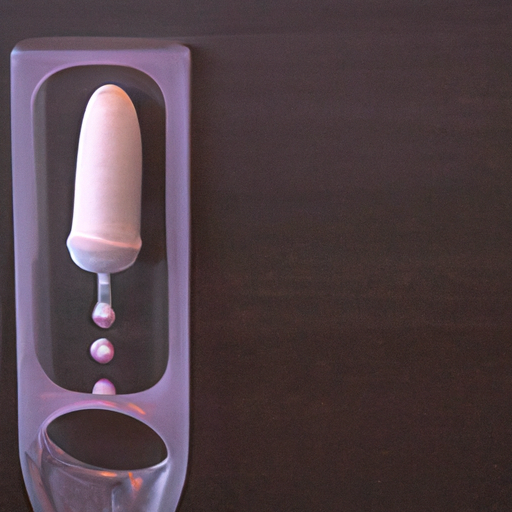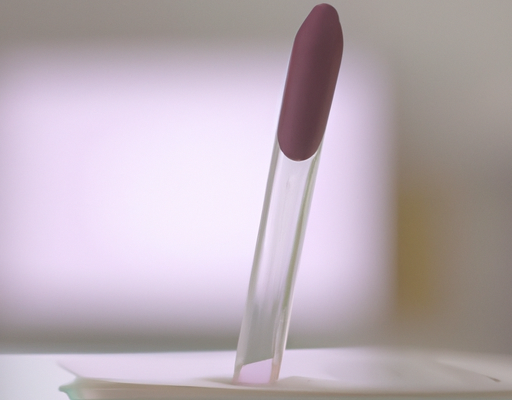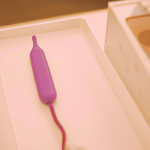“Unlock the Power of Masturabation: Discover How it Can Impact Ovulation!”
Introduction
Female masturbation is a topic that is often overlooked in the discussion of reproductive health. While it is widely accepted that male masturbation can affect sperm production and fertility, the effects of female masturbation on ovulation are less understood. This article will explore the potential effects of female masturbation on ovulation, as well as the potential benefits of masturbation for women. We will also discuss the potential risks associated with female masturbation and how to ensure safe and healthy masturbation practices.
The Science Behind Female Masturbation and Ovulation
Female masturbation is a topic that has been widely discussed in recent years, but the science behind it is often overlooked. This article will explore the science behind female masturbation and its potential role in ovulation.
The female reproductive system is complex and involves many hormones and processes. One of the most important hormones involved in the female reproductive system is estrogen. Estrogen is responsible for the development of the female reproductive organs and the regulation of the menstrual cycle. Estrogen levels fluctuate throughout the menstrual cycle, and this fluctuation can affect a woman’s libido and sexual arousal.
Studies have shown that female masturbation can increase estrogen levels in the body. This increase in estrogen can lead to an increase in libido and sexual arousal. This increase in libido and sexual arousal can lead to an increase in the likelihood of ovulation.
In addition to increasing estrogen levels, female masturbation can also increase the production of other hormones such as oxytocin and prolactin. Oxytocin is a hormone that is released during sexual arousal and is responsible for feelings of pleasure and bonding. Prolactin is a hormone that is released during orgasm and is responsible for feelings of relaxation and satisfaction.
The increase in these hormones can lead to an increase in the likelihood of ovulation. This is because the hormones can help to regulate the menstrual cycle and can help to trigger ovulation.
In conclusion, female masturbation can play an important role in ovulation. It can increase estrogen levels, which can lead to an increase in libido and sexual arousal. This increase in libido and sexual arousal can lead to an increase in the likelihood of ovulation. In addition, female masturbation can also increase the production of other hormones such as oxytocin and prolactin, which can help to regulate the menstrual cycle and can help to trigger ovulation.
How Masturbation Can Impact Ovulation and Fertility
Masturbation is a normal and healthy sexual activity that many people engage in. However, it can have an impact on ovulation and fertility. This article will discuss how masturbation can affect ovulation and fertility.
Masturbation can affect ovulation in several ways. First, it can cause a decrease in the production of hormones that are necessary for ovulation. This can lead to irregular menstrual cycles and difficulty conceiving. Additionally, masturbation can cause an increase in the production of prolactin, a hormone that can inhibit ovulation.
Masturbation can also affect fertility. It can cause a decrease in sperm count and motility, which can make it more difficult to conceive. Additionally, it can cause an increase in the production of cortisol, a hormone that can interfere with the production of testosterone, which is necessary for sperm production.
Finally, masturbation can cause an increase in the production of oxytocin, a hormone that can cause uterine contractions. This can make it more difficult for an egg to implant in the uterus, thus making it more difficult to conceive.
In conclusion, masturbation can have an impact on ovulation and fertility. It can cause a decrease in the production of hormones necessary for ovulation, a decrease in sperm count and motility, and an increase in the production of hormones that can interfere with fertility. Therefore, it is important to be aware of the potential effects of masturbation on ovulation and fertility.
Exploring the Relationship Between Masturbation and Ovulation
Masturbation is a common sexual activity that has been practiced for centuries. It is often seen as a taboo topic, but it is important to understand the potential effects it can have on ovulation. This article will explore the relationship between masturbation and ovulation, and provide insight into how it may affect fertility.
Masturbation is the self-stimulation of the genitals for sexual pleasure. It can be done with or without the use of sex toys, and can be done alone or with a partner. Masturbation can be a healthy and enjoyable part of a person’s sex life, and it can also be used as a form of contraception.
Ovulation is the process in which a woman’s body releases an egg from the ovary. This egg is then available to be fertilized by sperm, and if it is, it will result in pregnancy. Ovulation is an important part of the menstrual cycle, and it is necessary for conception.
The relationship between masturbation and ovulation is not well understood. Some studies have suggested that masturbation can affect ovulation, but the evidence is inconclusive. One study found that women who masturbated more frequently had a higher rate of ovulation than those who did not. However, this study did not take into account other factors that could have affected the results, such as diet, stress, and lifestyle.
It is important to note that masturbation does not directly cause ovulation. However, it can affect the hormones that regulate the menstrual cycle, which can in turn affect ovulation. For example, masturbation can increase levels of the hormone oxytocin, which can lead to an increase in the production of luteinizing hormone (LH). LH is responsible for triggering ovulation, so an increase in LH can lead to an increase in ovulation.
Masturbation can also affect the timing of ovulation. Studies have found that women who masturbate more frequently tend to have shorter menstrual cycles, which can lead to ovulation occurring earlier in the cycle. This can be beneficial for couples trying to conceive, as it increases the chances of conception.
In conclusion, the relationship between masturbation and ovulation is not well understood. While some studies have suggested that masturbation can affect ovulation, the evidence is inconclusive. It is important to note that masturbation does not directly cause ovulation, but it can affect the hormones that regulate the menstrual cycle, which can in turn affect ovulation. Therefore, it is important to consider the potential effects of masturbation on ovulation when trying to conceive.
The Benefits of Masturbation for Women Trying to Conceive

Masturbation is a healthy and natural activity that can be beneficial for women who are trying to conceive. It can help to reduce stress, increase libido, and improve overall sexual health. Additionally, it can help to increase fertility by improving the quality of cervical mucus and increasing the chances of conception.
Masturbation can help to reduce stress and anxiety, which can be beneficial for women who are trying to conceive. Stress can interfere with the body’s ability to conceive, so reducing stress can help to improve fertility. Masturbation can also help to increase libido, which can be beneficial for couples who are trying to conceive. Increased libido can lead to more frequent intercourse, which can increase the chances of conception.
Masturbation can also help to improve overall sexual health. It can help to increase blood flow to the pelvic area, which can improve the quality of cervical mucus. This can help to make it easier for sperm to travel to the egg, increasing the chances of conception. Additionally, masturbation can help to strengthen the pelvic floor muscles, which can help to improve sexual pleasure and increase the chances of conception.
Finally, masturbation can help to increase fertility by improving the quality of cervical mucus. Cervical mucus is important for conception because it helps to protect and nourish the sperm as it travels to the egg. Improving the quality of cervical mucus can help to increase the chances of conception.
In conclusion, masturbation can be beneficial for women who are trying to conceive. It can help to reduce stress, increase libido, and improve overall sexual health. Additionally, it can help to increase fertility by improving the quality of cervical mucus and increasing the chances of conception. For these reasons, masturbation can be a helpful tool for women who are trying to conceive.
How Masturbation Can Help Women Regulate Their Menstrual Cycles
Masturbation is a natural and healthy way for women to explore their bodies and gain a better understanding of their sexual needs and desires. It can also be used to help regulate menstrual cycles.
The hormones released during masturbation can help to regulate the menstrual cycle. When a woman masturbates, her body releases endorphins, which are hormones that can help to reduce stress and anxiety. This can help to regulate the hormones that control the menstrual cycle, such as estrogen and progesterone.
Masturbation can also help to reduce cramps and other menstrual symptoms. The release of endorphins can help to reduce pain and discomfort associated with menstrual cramps. Additionally, the increased blood flow to the pelvic area can help to reduce inflammation and relax the muscles, which can help to reduce cramps.
Masturbation can also help to regulate the length of the menstrual cycle. When a woman masturbates, her body releases oxytocin, which is a hormone that helps to regulate the length of the menstrual cycle. Oxytocin helps to regulate the production of other hormones, such as estrogen and progesterone, which can help to regulate the length of the menstrual cycle.
Finally, masturbation can help to reduce the risk of developing certain menstrual disorders. Masturbation can help to reduce the risk of developing endometriosis, which is a condition in which the tissue that lines the uterus grows outside of the uterus. Additionally, masturbation can help to reduce the risk of developing polycystic ovary syndrome, which is a condition in which the ovaries produce too much of certain hormones.
In conclusion, masturbation can be a helpful tool for women to regulate their menstrual cycles. The hormones released during masturbation can help to reduce stress and anxiety, reduce cramps and other menstrual symptoms, regulate the length of the menstrual cycle, and reduce the risk of developing certain menstrual disorders. Therefore, it is important for women to explore their bodies and understand their sexual needs and desires in order to maintain a healthy menstrual cycle.
Understanding the Effects of Masturbation on Ovulation and Fertility
Masturbation is a common sexual activity that is often seen as a healthy and normal part of sexual expression. However, it is important to understand the potential effects of masturbation on ovulation and fertility.
Ovulation is the process by which a woman’s body releases an egg from the ovary. This egg is then available to be fertilized by sperm, leading to pregnancy. Masturbation does not directly affect ovulation, but it can have an indirect effect.
Masturbation can cause a woman’s body to release hormones that can affect the timing of ovulation. For example, the hormone oxytocin is released during orgasm, which can cause the uterus to contract and can affect the timing of ovulation. Additionally, the hormone prolactin is released during orgasm, which can cause a decrease in the production of other hormones, such as estrogen and progesterone, which are necessary for ovulation.
Masturbation can also affect fertility by causing a decrease in sperm count. This is because the act of ejaculation can reduce the number of sperm in the semen. Additionally, frequent masturbation can lead to a decrease in testosterone levels, which can also affect sperm production.
Finally, masturbation can also affect fertility by causing a decrease in libido. This is because the act of masturbation can lead to a decrease in sexual arousal, which can lead to a decrease in sexual desire.
Overall, it is important to understand the potential effects of masturbation on ovulation and fertility. While masturbation does not directly affect ovulation, it can have an indirect effect by causing a decrease in hormones necessary for ovulation, a decrease in sperm count, and a decrease in libido. Therefore, it is important to be aware of these potential effects when considering masturbation as part of a healthy sexual lifestyle.
The Pros and Cons of Female Masturbation and Ovulation
The practice of female masturbation and ovulation has been a topic of debate for many years. While some view it as a natural and healthy part of a woman’s life, others view it as a taboo and potentially dangerous activity. In this article, we will explore the pros and cons of female masturbation and ovulation to help you make an informed decision about whether or not it is right for you.
Pros of Female Masturbation and Ovulation
1. Improved Sexual Health: Masturbation can help to improve a woman’s sexual health by increasing blood flow to the genitals, which can help to reduce the risk of sexually transmitted infections. Additionally, it can help to reduce stress and anxiety, which can lead to improved overall health.
2. Increased Fertility: Masturbation can help to increase a woman’s fertility by increasing the production of hormones that are necessary for ovulation. This can help to increase the chances of conception.
3. Improved Self-Esteem: Masturbation can help to improve a woman’s self-esteem by providing a sense of control and pleasure. This can help to reduce feelings of shame and guilt associated with sexual activity.
Cons of Female Masturbation and Ovulation
1. Risk of Infection: Masturbation can increase the risk of infection if not done properly. It is important to use a lubricant and to wash your hands before and after engaging in the activity.
2. Risk of Injury: Masturbation can also increase the risk of injury if done too vigorously. It is important to be gentle and to stop if any pain or discomfort is felt.
3. Risk of Unwanted Pregnancy: Masturbation can increase the risk of unwanted pregnancy if done during ovulation. It is important to use contraception if engaging in sexual activity during this time.
In conclusion, female masturbation and ovulation can be a healthy and beneficial activity for some women. However, it is important to be aware of the potential risks associated with the activity and to take the necessary precautions to ensure safety. Ultimately, the decision to engage in the activity should be made on an individual basis.
Conclusion
In conclusion, there is no scientific evidence to suggest that female masturbation affects ovulation. However, it is important to note that masturbation can have a positive effect on overall health and wellbeing, and can help to reduce stress and anxiety. Therefore, it is important to consider the potential benefits of masturbation when making decisions about sexual health.











